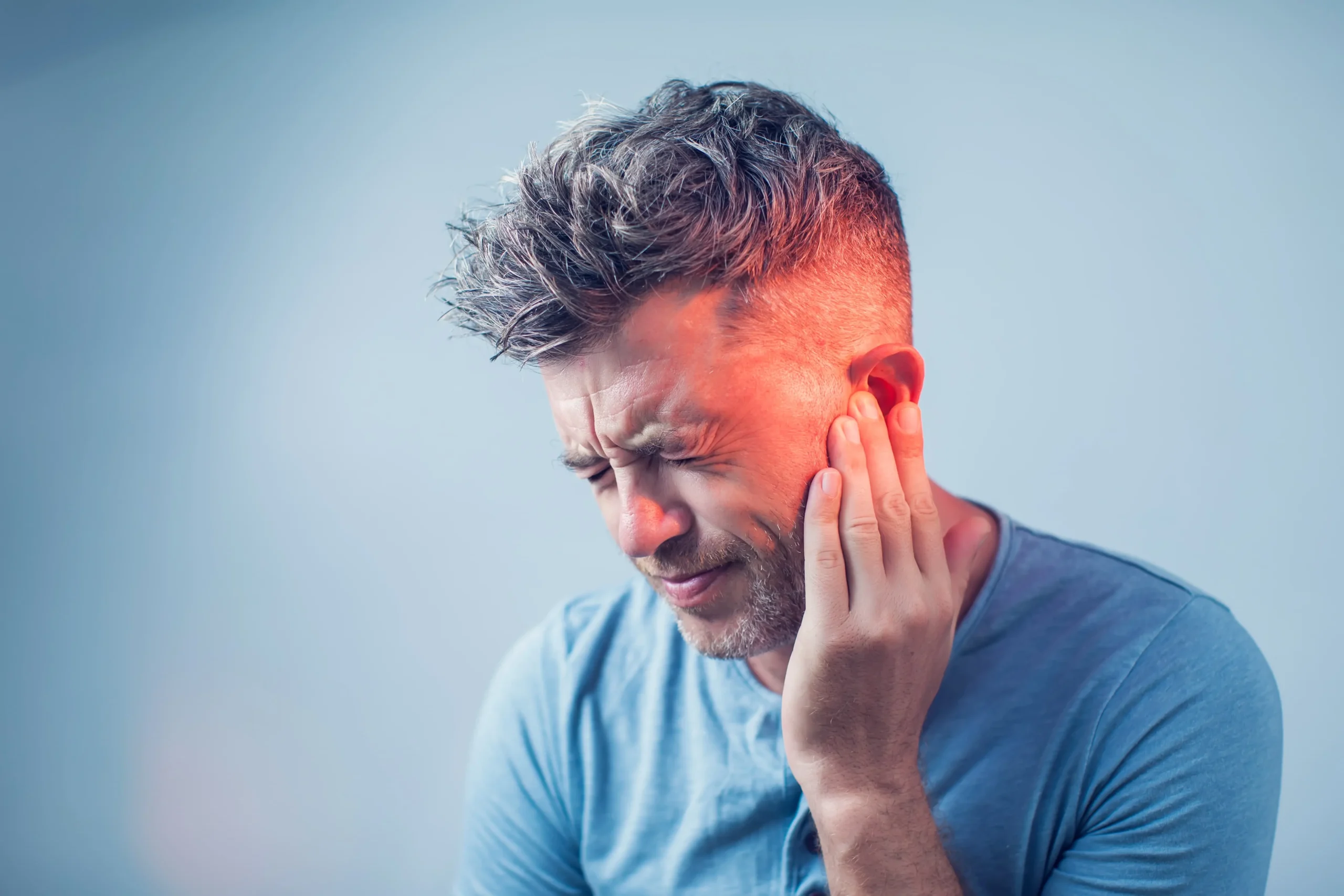Can Wisdom Teeth Cause Ear Pain? Signs & Relief Tips

Wisdom teeth—those late-blooming molars that emerge in your late teens to early twenties are notorious for causing discomfort. But did you know they can also trigger ear pain? If you’re experiencing a deep ache in your ear but have no signs of an ear infection, your wisdom teeth might be to blame.
Explore the connection between wisdom teeth and ear pain, the key signs to watch for, and practical relief tips to help you manage the discomfort with SDG Dental.
Can Wisdom Teeth Really Cause Ear Pain?
Yes! Wisdom teeth can indeed cause ear pain, and here’s why:
Shared Nerve Pathways
The nerves that serve your jaw, teeth, and ears are closely connected. When a wisdom tooth becomes impacted (trapped under the gum or growing at an odd angle), it can put pressure on these nerves, leading to referred pain in the ear.
The only complete cure in this situation is to perform an emergency wisdom tooth removal.
Jaw and TMJ Strain
The temporomandibular joint (TMJ), which connects your jaw to your skull, is located close to your ears. When wisdom teeth cause inflammation or misalignment in the jaw, it can create discomfort that radiates to the ears.
Sinus Pressure
Upper wisdom teeth sit near your sinus cavities. If they cause inflammation, it can lead to sinus congestion and pressure that mimics ear pain.
Infection and Sewlling
When wisdom teeth partially erupt, bacteria can enter the gum tissue, leading to infection (pericoronitis). Swelling and inflammation can spread to surrounding areas, including the ears.
Signs Your Ear Pain Is Due to Wisdom Teeth
How can you tell if your ear pain is related to your wisdom teeth and not an actual ear problem? Here are some key signs:
1. Pain at the Back of Your Mouth or Jaw
If your earache is accompanied by soreness in your jaw, particularly at the back where wisdom teeth are located, it’s a strong indicator that your teeth are the culprit.
2. Difficulty Opening Your Mouth
Inflammation from impacted wisdom teeth can make it painful to open your mouth wide, chew, swallow or even speak comfortably.
3. Swelling or Tenderness in the Gums
Red, swollen, or tender gums around the back molars suggest that your wisdom teeth may be impacted or infected.
4. Headaches and Facial Pain
Wisdom teeth pain can radiate to other areas, including your temples, cheeks, or even the side of your face. These symptoms could resemble a tension headache.
5. No Other Ear Infection Symptoms
If you don’t have typical ear infection symptoms like hearing loss, fever, or drainage from the ear but still experience ear pain, your wisdom teeth might be the source of your worries.
If there are no signs of a connection to oral issues, please seek medical attention with an ENT specialist to look into a possible cause for the ear pain.
How to Relieve Wisdom Tooth-Related Ear Pain
While SDG Dental does operate 6 days a week to give you care, you might still need to find quick at-home pain relief for your pain. Removing problematic wisdom teeth is often the best long-term solution, but there are several ways to ease the discomfort in the meantime.
1. Use Cold Compresses
Applying an ice pack or cold compress to the affected side of your jaw for 15-20 minutes can reduce inflammation and numb the pain.
2. Take Pain Relievers
Over-the-counter pain relievers can help reduce pain and inflammation. Always follow the dosage instructions.
3. Rinse with Warm Salt Water
A saltwater rinse (1 teaspoon of salt dissolved in warm water) can help reduce bacteria, soothe gum irritation, and prevent infection. Swish it around your mouth for 30 seconds and spit it out.
4. Try Clove Oil
Clove oil has natural pain-relieving properties. Apply a small amount to a cotton ball and place it near the affected tooth for relief.
5. Avoid Hard or Chewy Foods
Chewing tough foods can put extra strain on your jaw and worsen the pain. Stick to soft foods like soup, yoghurt, and mashed veggies.
7. Use a Warm Compress for Jaw Tension
If your pain is linked to jaw tension or TMJ issues, applying a warm compress to the jaw can help relax the muscles and ease discomfort.
When to See a Dentist
While home remedies can provide temporary relief, persistent or worsening pain means it’s time to see a dentist. Seek professional care if you experience:
- Severe or worsening pain that doesn’t improve with painkillers
- Swelling in the face or jaw that makes it hard to open your mouth
- Signs of infection like fever, bad breath, or pus near the tooth
- Persistent ear pain for several days with no ear infection
Our dentists may recommend an X-ray to assess whether your wisdom teeth need removal. In many cases, extracting impacted wisdom teeth resolves the ear pain for good.

Teeth might be tiny part of your body, but they can cause a surprising amount of trouble. If you’re experiencing unexplained earaches alongside jaw discomfort, your wisdom teeth could be the reason. While home remedies can help manage the pain, seeing a dentist for evaluation is the best way to find lasting relief.
Need Relief from Wisdom Tooth Pain?
If your wisdom teeth are causing discomfort, book a consultation with us at SDG Dental to explore your options. A removal could be the key to stopping the pain for good! Contact us at 039 887 0888 for more.



